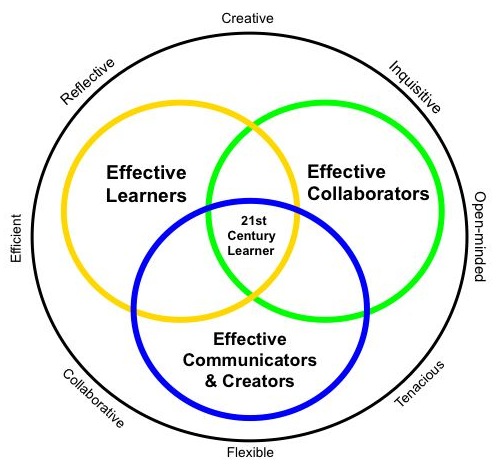Student Blogging Guidelines by Kim Cofino

Cross-posted on the Tech Learning Advisors Blog
Only one month into the new school year and almost every middle school student has their own blog hosted at ISB (plus all of our grade 5s, and quite a few high school students)! Thanks to our fantastic middle school Humanities and Modern Language teachers, who spent their class time helping students create their own blog, we are off and running in record time! In fact, the process was so easy that almost all of our students had their blogs set up before we formalized our student blogging guidelines. So last week, I met with the Humanities department (and other interested teachers) to determine a set of basic guidelines for our students. To get us started, we took a look at the blogging guidelines our elementary students developed last school year during their first experiences blogging. Interestingly, the guidelines our grade 4 students created last year were just as applicable to middle (and high) school as they were for elementary. We ended up using almost all of the guidelines from last year, with just a few minor re-phrasing issues and consolidation. Given that the elementary students created these guidelines after a series of thoughtful lessons and meaningful class discussions, we see these them as prompts for deeper dialogue across classes, not simply a list of rules to follow. In order to help students make the best decisions, we've also followed each guideline with a question (also developed by our elementary students last year) they can ask themselves before they hit publish. Here's what we came up with:
Student Blogging Guidelines As a student blogger at ISB, you are expected to follow these blogging guidelines below. Use the questions in italics to help you decide what is appropriate to post on your blog. 1. Only post things that you would want everyone (in school, at home, in other countries) to know. Ask yourself: Is this something I want everyone to see?2. Do not share personal information. Ask yourself: Could someone find me (in real life) based on this information?3. Think before you post. Ask yourself: What could be the consequences of this post?4. Know who you’re communicating with. Ask yourself: Who is going to look at this, and how are they going to interpret my words?5. Consider your audience and that you’re representing ISB. Ask yourself: Do I have a good reason/purpose to do this?6. Know how to give constructive feedback. Ask yourself: What will I cause by writing this post?7. Treat other people the way you want to be treated. Ask yourself: Would I want someone to say this to me?8. Use appropriate language and proper grammar and spelling. Ask yourself: Would I want this post to be graded for proper grammar and spelling?9. Only post information that you can verify is true (no gossiping). Ask yourself: Is this inappropriate, immature or bullying?10. Anytime you use media from another source, be sure to properly cite the creator of the original work. Ask yourself: Who is the original creator of this work?Commenting Guidelines As a blogger, you will be commenting on other people’s work regularly. Good comments:
- are constructive, but not hurtful;
- consider the author and the purpose of the post;
- are always related to the content of the post;
- include personal connections to what the author wrote;
- answer a question, or add meaningful information to the content topic;
- follow the writing process. Comments are a published piece of writing.
Final Thoughts I'm so impressed with the depth of thought shown by our elementary students! Being able to start this conversation with our middle school teachers using resources developed by 3rd, 4th and 5th grade students, clearly demonstrates that even our younger students really do understand both the power and the responsibilities of communicating to a global audience.
It's also great to see that our ISB21 team vision of developing enduring understandings that are not grade-level specific, but rather provide a through-line for all divisions, has helped us focus on the bigger understandings and mindsets that students really will need to carry with them from year to year.

When discussing blogging safety and responsibility with the 3rd, 4th, and 5th graders last year, we did it in such a way that what they came up with were skills and essential questions that would help digital students no matter what grade level they're in. Once again, I'm reassured that elementary school is the place to begin this kind of dialogue so that we can provide a solid foundation for 21st century learning that students can continue to build upon year after year. These guidelines have now been adopted by our elementary and high schools as well, so that we have a common expectation for all students at ISB, no matter what the age or grade level. It will certainly be interesting to see what develops at all grade levels now that all of our students have their own blog hosted at ISB. We're hoping that these blogs become their digital portfolio for their entire time with us. Being able to track their growth and learning over the years will be such a powerful tool for the students, teachers and parents. Does your school have common guidelines for student blogging? What do they include? Are we missing anything here?
Tools and ideas to transform education. Sign up below.
